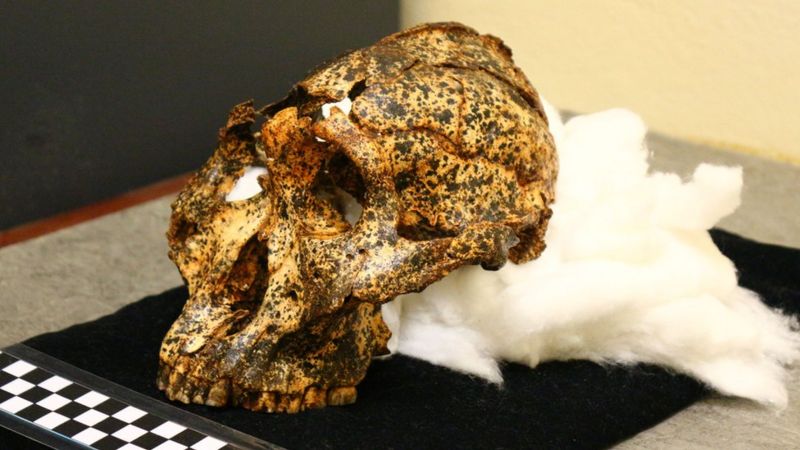Two-million-year-old skull of human 'cousin' unearthed [View all]
The skull was a male Paranthropus robustus, a "cousin species" to Homo erectus - a species thought to be direct ancestors of modern humans. The two species lived around the same time, but Paranthropus robustus died out earlier. The research team described the find as exciting.
"Most of the fossil record is just a single tooth here and there so to have something like this is very rare, very lucky," Dr Angeline Leece told the BBC. The researchers, from Melbourne's La Trobe University, found the skull's fragments in 2018 at the Drimolen archaeological site north of Johannesburg. It was uncovered just metres away from a spot where a similarly aged Homo erectus skull of a child was discovered in 2015.
It is thought that three hominins (human-like creatures) species lived in South Africa at the same time in competition with each other. As such the skull discovery presented a rare example of "microevolution" within human lineage, Mr Martin said. Paranthropus robustus had large teeth and small brains, differing from Homo erectus which had large brains and small teeth. It is believed the former's diet involved eating mainly tough plants, like tubers and bark.
Archaeologists then spent the past few years piecing together and analysing the fossil. Their findings were published in the Nature, Ecology and Evolution journal on Tuesday.
https://www.bbc.com/news/world-australia-54882214
The two-million-year-old skull is a Paranthropus robustus specimen

